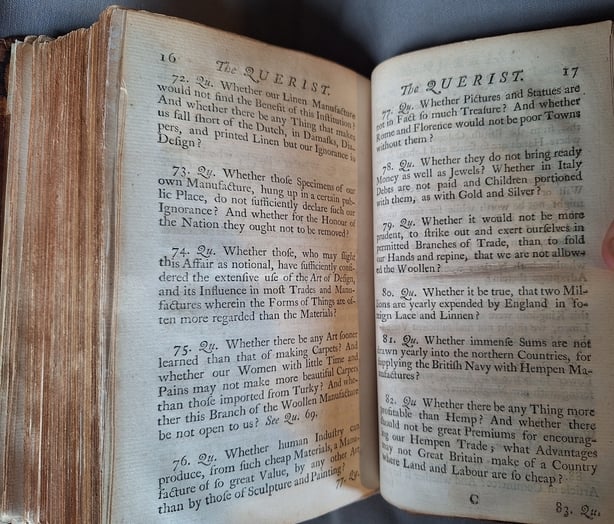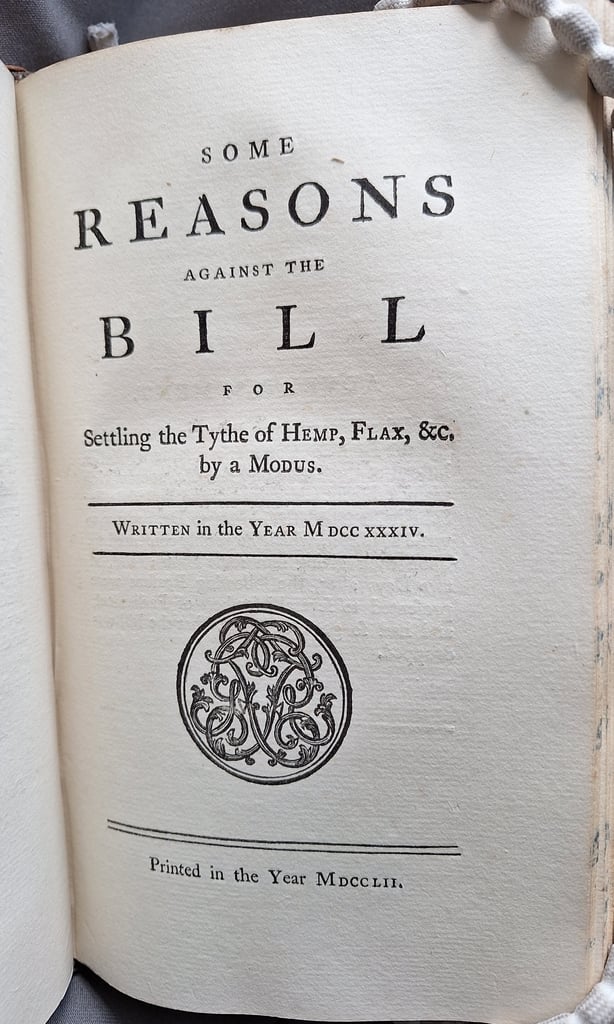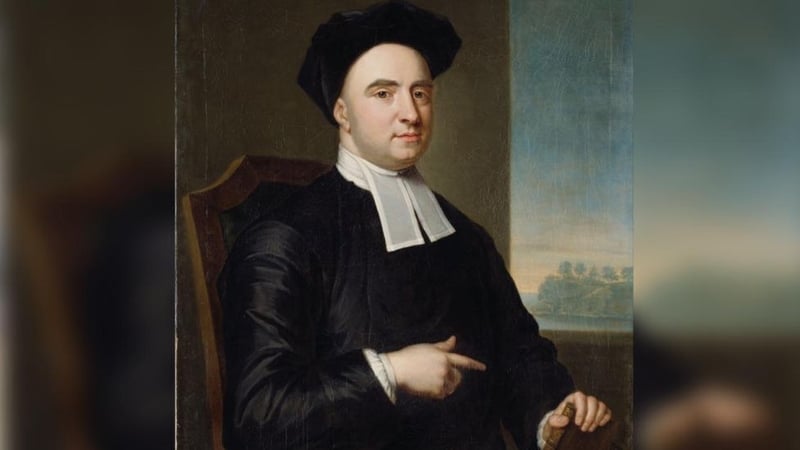Analysis: The strange story of Ireland's most conservative philosopher, bishop and slave owner, and his interest in growing hemp in Clare and Limerick
By Clare Moriarty, TCD
George Berkeley is Ireland's best-known philosopher. Born in 1685, he attended Kilkenny College before heading up to TCD at 15. He is best known for a view called immaterialism, which is the philosophical position that no material things exist independent of the beings that perceive them. His slogan is "to be is to be perceived (or to perceive)". Naturally, trees and meringues exist, they just can’t be understood in their own right, outside of people’s experiences of them. He was well known in his time for important work on vision and for promoting the universal health benefits of tar-water.
More recently, he has been the subject of scrutiny as his slaveholding and slavery-promotion became public knowledge. Berkeley bought and owned slaves while living in Rhode Island and his writings supported slavery, both defending the American system and suggesting slavery be introduced for poor indigenous Irish people. As a result, the Trinity Library that was named for him in 1978 was denamed last year. Berkeley remains an important part of most philosophical educations and what is valuable in his work will survive interrogations of his personal failings.
We need your consent to load this rte-player contentWe use rte-player to manage extra content that can set cookies on your device and collect data about your activity. Please review their details and accept them to load the content.Manage Preferences
From RTÉ Radio 1's Drivetime, Prof. Eoin O'Sullivan, Senior Dean and Chair of Trinity Legacies Review on why TCD's Berkeley Library is to be de-named
But something he is not as well known for is his championing of cannabis. Industrial hemp cultivation is on the rise globally, with hemp regarded as something of a super-crop. It's gown for fibre, food, and feed and Teagasc lists its principal advantageous properties as being a low-input crop that improves soil structure and increases the yield of whatever crop follows it. That said, the hemp industry has been slow to take off in Ireland, despite the crop growing "surprisingly well" in our maritime climate.
It’s been grown here for ages. Gerald of Wales mentions it in his 12th century Topographia Hiberniae, while numerous sources in Marsh's Library, Dublin’s first public library (opened in 1707), attest to hemp’s long legacy in Ireland.
Berkeley’s main commentary on the glories of hemp can be found in an unusual 1735 economic treatise. The Querist is composed of pointed questions and tackles everything from the excessive luxury and import culture of the Anglo-Irish aristocracy to the race science that explains the lazy, beggarly condition of the Irish poor. We are descended from Spanish and Tartar peoples, apparently!

Berkeley believed all would be improved if rich landowners would cultivate hemp. As tillage, hemp would employ more "natives" than livestock (these days, we also note the lower carbon footprint). Hemp was also important for trade and security. Ships’ sails are made from hemp, so dependence on foreign trade ("the northern Countries" -- usually the Dutch) for them was putting prosperity and safety in the hands of potential foes.
Berkeley queries:
82. Qu. Whether there be any Thing more profitable than Hemp? And whether there should not be great Premiums for encouraging our Hempen Trade; what Advantages may not Great Britain make of a Country where Land and Labour are so cheap?
83. Qu. Whether Ireland alone might not raise Hemp sufficient for the British Navy? (...)
If the existing aristocracy wouldn’t go for it, he thought, they should invite more industrious ones instead. And he had locations in mind:
84. Qu. Whether if our own People want Will or Capacity for such an Attempt it might not be worth while for some undertaking Spirits in England to make Settlements and raise Hemp in the Counties of Clare and Limeric, than which perhaps there is not fitter Land in the World for that Purpose?
He also saw it as a solution to Irish unemployment:
85. Qu. Whether if all the idle Hands in this Kingdom were employed on Hemp and Linen, we might not find sufficient Vent for these Manufactures?
And:
91. Qu. If all the Land were tilled that is fit for Tillage, and all that sowed with Hemp, and Flax, that is fit for raising them, whether we should have much Sheep-Walk beyond what was sufficient to supply the Necessities of the Kingdom?

Jonathan Swift also numbered among the hemp commentariat. Responding to a Bill attempting to stimulate Irish hemp cultivation by replacing the regular tithe on hemp with a single payment, Swift throws his toys out of the pram, suggesting such a strategy is simply a nefarious tax on the clergy, and that taking the tithes from hemp and flax would ironically punish the island’s premiere hemp-promoters and seed-hunters.
[I]f I am rightly informed, no Set of Men hath, for their Number and Fortunes, been more industrious and successful than the Clergy, in introducing that Manufacture into Places which were unacquainted with it; by persuading their People to sow Flax and Hemp; by procuring Seed for them; and by having them instructed in the Management thereof.
This is interestingly borne out in Berkley’s private correspondences, where we see him trying to procure more hemp-seed from his business manager (amidst chat about his spinning school and a planned hemp workhouse for the unfortunate):
Our spinning-school is in a thriving way. The children begin to find a pleasure in being paid in hard money; which I understand they will not give to their parents, but keep to buy clothes for themselves. (…) I am building a workhouse for sturdy vagrants, and design to raise about two acres of hemp for employing them. Can you put me in a way of getting hemp-seed; or does your Society distribute any? It is hoped your flax-seed will come in time.
Despite the interest of such learned influencers, 18th century hemp never took off as hoped. The historical reasons resemble issues faced by today’s hemp farmers: lack of processing infrastructure, licensing issues and lack of an end market. As to renewed interest in hemp cultivation, we can be confident Bishop Berkeley would believe it’s high time.
Follow RTÉ Brainstorm on WhatsApp and Instagram for more stories and updates
Dr Clare Moriarty is an Irish Research Council postdoc researcher in the Department of Philosophy in the Trinity Long Room Hub in TCD. Her research in Marsh's Library was supported by a Maddock Fellowship.
The views expressed here are those of the author and do not represent or reflect the views of RTÉ
